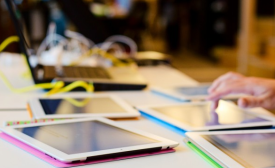digital diplomacy

Should public diplomacy policy-makers turn to digital diplomacy tools for the future of practice? I ask this question to provoke some reflection among public diplomacy watchers beyond the quick criticism of tweeting ambassadors and social media campaigns. There seems to be some debate over whether or not digital media practices represent the future of US public diplomacy.
Countries all over the world, dictatorships and democracies alike, have in the last few years sought to tame — or plug entirely — that real-time fire hose of public opinion known as Twitter. But on the sidelines of the General Assembly meeting over the last couple of weeks, ministers, ambassadors and heads of state of all sorts, including those who have tussled with Twitter the company, seized on Twitter the social network to spin and spread their message.
China's recent history has been marked by two key features: rampant economic growth and tight governmental control on the spread of information. Now, it seems, both are starting to wane, as economic expansion is slowing down and even the government's zealous grip on the internet is beginning to loosen.
Norwegian Internet browser maker Opera Software expects its data-light mobile phone browser will play a central role in a Facebook-led project aimed at bringing Internet access to third-world consumers, Opera's CEO told Reuters. The project, called Internet.org, was launched last week by Facebook Chief Executive Mark Zuckerberg, who says he wants to make Internet access affordable for the 5 billion people around the world who are not online.
Digital diplomacy, the hipster cousin of public diplomacy, has been enjoying something of a Golden Age recently, with any (Western) diplomat or minister of any note (and the more forward looking senior officials too) offering digital pronouncements, policy engagement and two-way conversations as a mechanic for gathering support and understanding around often complex areas of foreign affairs.
India's online population is growing six times as fast as the global average and now ranks as the third largest in the world after China and the US, a new study has indicated. The 2013 India Digital Future In Focus report from comScore, the digital measurement company, pulled together data from its different surveys to identify prevailing trends in web usage, online video, social networking and online retail.
The Internet Corporation For Assigned Names and Numbers (ICANN) has invited Azerbaijan to join the leadership of the organization. At a conference marking the 20th anniversary of the use of national top-level domain name. Az, Vice President of ICANN Veni Markovski called on Azerbaijan to increase its participation in the work of the organization, 1news.az reports.







